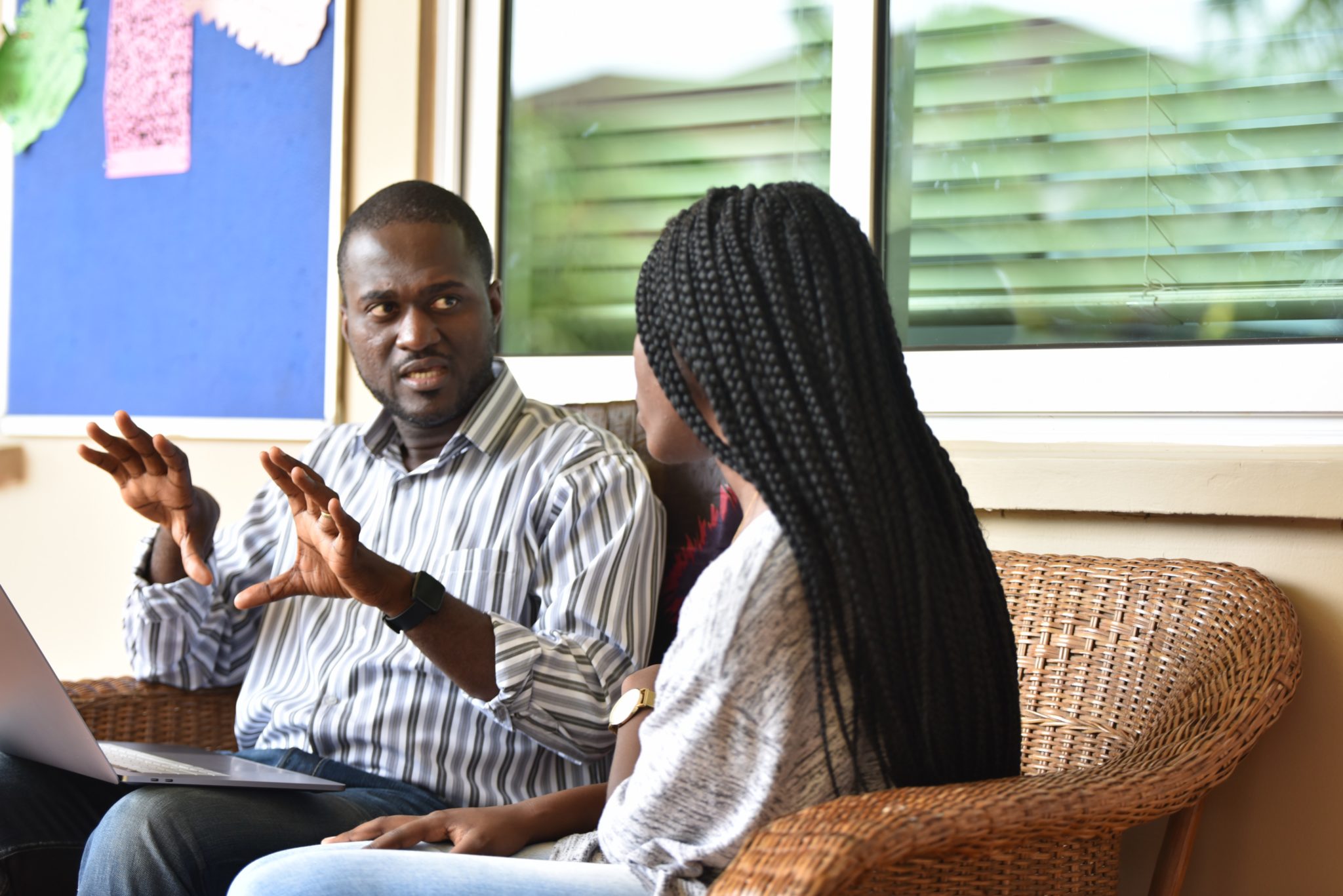 November 18, 2019
November 18, 2019
Emmanuel Ntow’s office is easily one of the busiest on campus. It’s fairly common to have students either waiting outside the office or catching him off-guard on his way to lunch or a meeting — perhaps unsurprisingly so.
He runs the Academic Advisory office at Ashesi.
A little over a year ago, Ashesi officially set up an office to cater for Academic advisory. Set up within the Coaching and Counselling department, the office provides tailored academic support and coaching to help students develop and maintain balance over their journey at Ashesi.
To get a better sense of how this unit is helping students at Ashesi improve their grades while enjoying a rich college experience, we had a conversation with Emmanuel to share his journey of being an academic advisor at Ashesi.
Ashesi: What do you perceive the purpose of this role is to students?
Emmanuel: The essence of the unit from its inception was to help increase retention rate and ensure students who fall through the cracks in the course of the academic journey get the needed help in order to excel and this is exactly what we have been successful in doing for the past year and three months.
The biggest idea has been to help students proactively navigate their way through the academic journey and so far we have seen a great reduction rate in students on probation. So that’s a good sign.
Ashesi: What is a typical day in your office?
Emmanuel: I usually see an average of 20- 40 students a day, explaining policies to them and having regular meetings with the Head of Academics to reevaluating policies that better help the academic climate on campus. One of the policies we considered which I believe was a good decision was to bring back the “late drop policy” which has helped students a lot. This policy allows students to drop a course after the 8th week when they feel they are not so strong in it so they get to concentrate on the other courses for the rest of the semester.
Ashesi: What are some successes in the unit you would like to share?
Emmanuel: Through the unit, we have been able to relook into the academic system with respect to probation and academic dismissal. Previously it was quick to dismiss a poor performing student but now, students get to go through counseling and have an academic advisor with an extra two semesters to get back on track before dismissal. This strategy gives students an opportunity to recharge and get back on track before the option of dismissal. Some students as young adults go through various issues so it’s only safe to assume this of them and give them an opportunity to make things better.
Ashesi: What works best in terms of getting students to stay on track?
Emmanuel: The unit has done some research on what works for students in terms of academics. A good example will be “the peer support system” the unit introduced. We realized that some students learn better when they are taught by their friends, so we locate such students and quickly find support systems for them. Essentially, we pair strong students with struggling students to help them excel in various courses.
Being in the academic advisor role, one of the things Emmanuel looks forward to is getting creative with his locations to meet with students as this makes his meetings more of a heart-to-heart.
Ashesi: What motivates you every day to come to Ashesi to do this job?
Emmanuel: I believe this unit has made student life much more comfortable and stress-free. Before this role, I worked as a registry officer and it used to hurt so bad when I see students come to me to check their grades, realize they are drowning, and can’t do anything about it probably because it’s too late. Upon realizing this, I started sitting students down and sharing some tips on how to live that balanced student life and helping them track their records so as not to fall below the line. Therefore it is great that now I get to do this full time, as I see what this does for a lot of students and for me, this is satisfying.
Share this story
